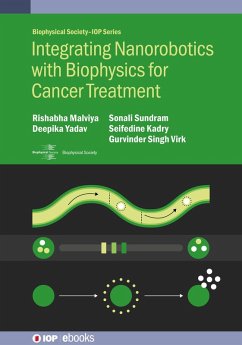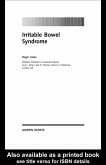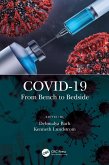Nanorobots are nanoscale machines that can perform at the same level as regular sized machines. They have uses in the medical, industrial, and other fields, such as the development of nanomotors for energy conversion. As blood-borne devices, nanorobots can improve critical therapeutic procedures like early diagnosis and intelligent medication administration. Drugs can be delivered specially to malignant cells with the help of a nanorobot, sparing the surrounding healthy tissue. With this procedure, cancer can be more rapidly eradicated and with fewer side effects. With the assistance of nanorobots as drug transporters, chemical compounds can be kept in the bloodstream for as long as necessary, providing the desired pharmacokinetic characteristics for chemotherapy in anti-cancer therapies. Significant progress has been made in the design of micro/nanorobots for cancer treatment.
In this book, the authors explore the pros and cons of combining biophysics with micro and nanorobots for cancer treatment. This book offers the most recent findings on employing nano/microrobots in biophysics for cancer treatment. Insightful analysis and commentary from the authors complement a comprehensive survey of recent advances and ground-breaking research in the field. Chapters are followed by examples that illustrate the key points or applications of the material covered in that chapter, bridging the gap between the theoretical framework presented here and the rigorous investigation into the subject matter that awaits the reader, once they have mastered the material presented in the book.
In this book, the authors explore the pros and cons of combining biophysics with micro and nanorobots for cancer treatment. This book offers the most recent findings on employing nano/microrobots in biophysics for cancer treatment. Insightful analysis and commentary from the authors complement a comprehensive survey of recent advances and ground-breaking research in the field. Chapters are followed by examples that illustrate the key points or applications of the material covered in that chapter, bridging the gap between the theoretical framework presented here and the rigorous investigation into the subject matter that awaits the reader, once they have mastered the material presented in the book.
Dieser Download kann aus rechtlichen Gründen nur mit Rechnungsadresse in A, D ausgeliefert werden.









